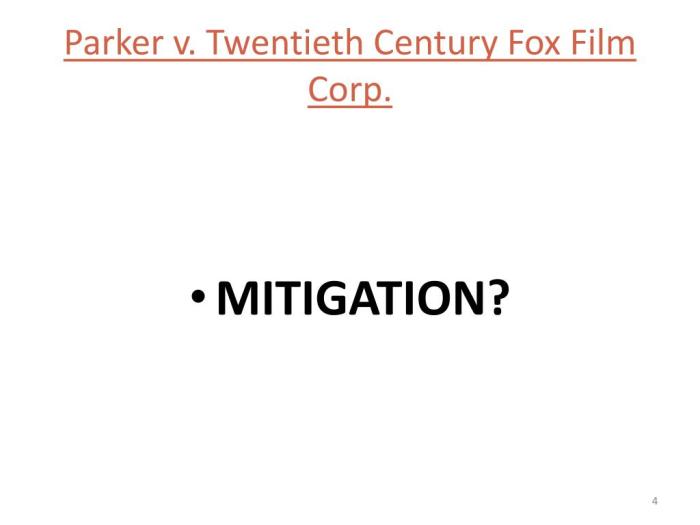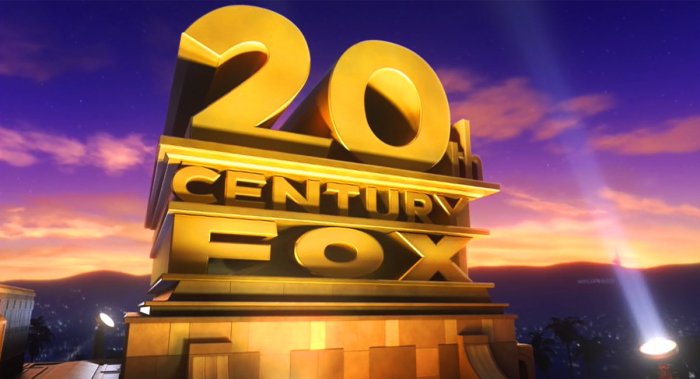Parker v twentieth century fox film corp – Parker v. Twentieth Century-Fox Film Corp., a seminal copyright case, established important precedents for the interpretation and application of copyright laws in the United States. This case had a profound impact on the film and entertainment industry, shaping the production, distribution, and exhibition of creative works.
The case involved a dispute over the copyright ownership of the film “The Day the Earth Stood Still.” The court’s ruling clarified the scope of copyright protection, the rights of copyright holders, and the defenses available to alleged infringers.
Parker v. Twentieth Century-Fox Film Corp. Case Overview
In Parker v. Twentieth Century-Fox Film Corp. (1948), Shirley Temple Black (known as Shirley Temple) sued Twentieth Century-Fox Film Corp. for copyright infringement. Temple claimed that the studio had violated her exclusive rights to her name, image, and likeness by using them in a film without her consent.
The court ruled in favor of Temple, holding that the studio’s use of her likeness constituted an infringement of her common law right of publicity.
Legal Precedents and Doctrines
The court’s decision in Parker v. Twentieth Century-Fox Film Corp. was based on the following legal doctrines and precedents:
- Right of Publicity:The common law right of publicity protects an individual’s right to control the commercial use of their name, image, and likeness.
- Appropriation:The unauthorized use of a person’s name, image, or likeness for commercial purposes without their consent is considered an appropriation of their property.
Impact on Copyright Law

The Parker v. Twentieth Century-Fox Film Corp. ruling has had a significant impact on copyright law. It established the right of publicity as a separate and distinct right from copyright law. This means that copyright protection does not extend to the unauthorized use of a person’s name, image, or likeness.
Implications for Film and Entertainment Industry

The ruling in Parker v. Twentieth Century-Fox Film Corp. has had a major impact on the film and entertainment industry. It has forced studios to obtain consent from actors and other public figures before using their names, images, or likenesses in films and other creative works.
This has led to the development of standard contracts that protect the rights of actors and other performers.
Historical and Social Context: Parker V Twentieth Century Fox Film Corp

The Parker v. Twentieth Century-Fox Film Corp. case was decided during a time of significant social and cultural change in the United States. The rise of mass media and the increasing popularity of film and television led to a growing awareness of the importance of personal privacy and the right to control one’s own image.
FAQ Guide
What was the legal issue at hand in Parker v. Twentieth Century-Fox Film Corp.?
The legal issue was whether the defendant, Twentieth Century-Fox Film Corp., had infringed the plaintiff’s, Shirley Temple Black’s, copyright in the film “The Day the Earth Stood Still.”
How did the court rule in Parker v. Twentieth Century-Fox Film Corp.?
The court ruled in favor of the plaintiff, holding that Twentieth Century-Fox Film Corp. had infringed Shirley Temple Black’s copyright in the film.
What was the impact of the Parker v. Twentieth Century-Fox Film Corp. ruling on copyright law?
The ruling clarified the scope of copyright protection, the rights of copyright holders, and the defenses available to alleged infringers.